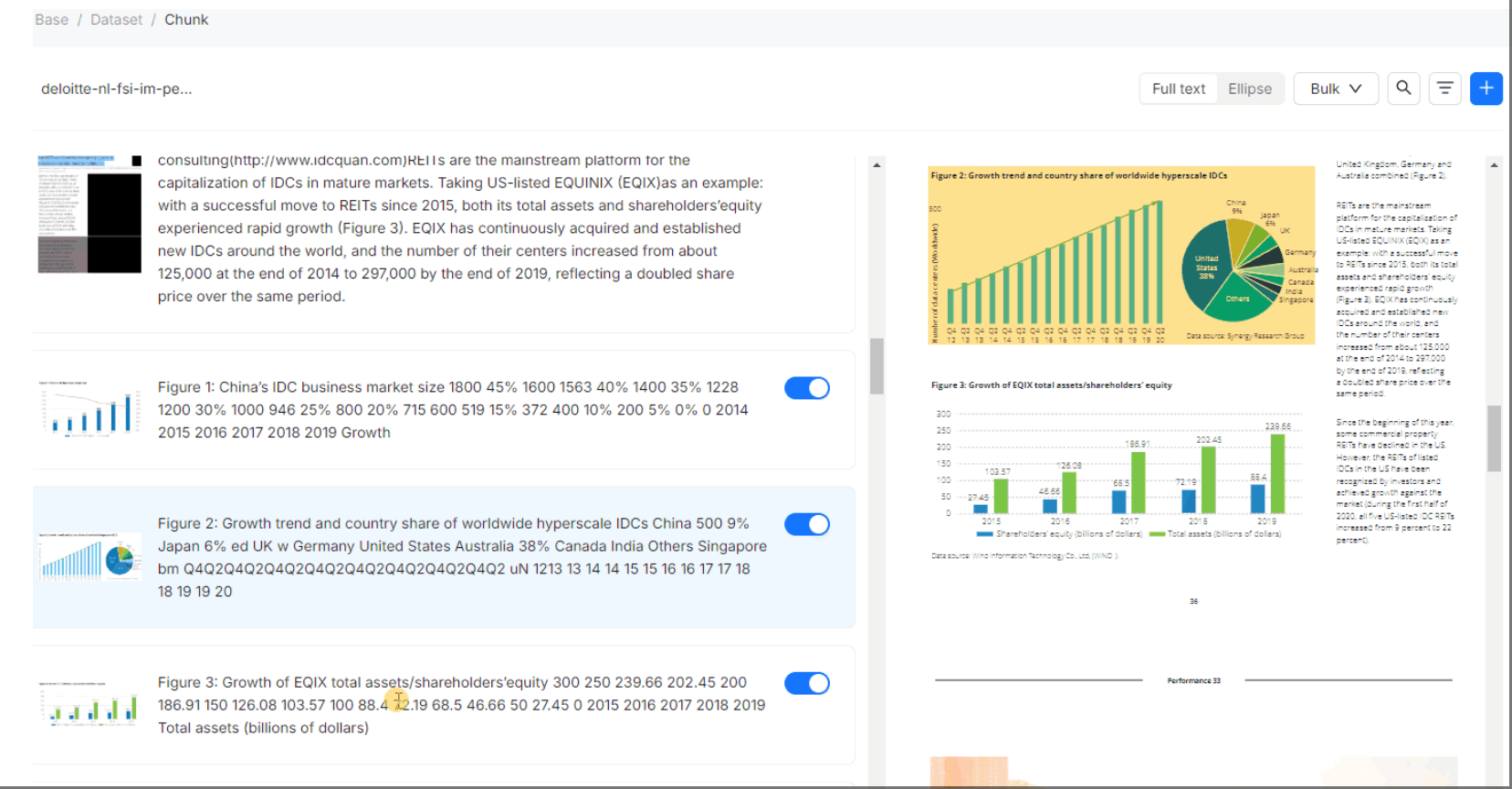Why dify?
A consensus has formed in the industry regarding the implementation of artificial intelligence, with four key elements crucial for success: foundational models, enterprise knowledge bases, intelligent agents, and integration into business processes. Dify offers a comprehensive solution that integrates these elements, accelerating corporate AI transformation.

AI Implementation Methodology
A consensus has formed in the industry regarding the implementation of artificial intelligence, with four key elements crucial for success: foundational models, enterprise knowledge bases, intelligent agents, and integration into business processes. Dify offers a comprehensive solution that integrates these elements, accelerating corporate AI transformation.
Foundational Models
These are the bedrock models for AI. High-performance models raise the lower limit of a company's AI capabilities and expand the upper limit.
- Role: The foundation for all AI.
Enterprise Knowledge Base
Enables AI to efficiently reuse corporate knowledge, providing data and operational support for the development of intelligent agents and model retraining.
- Role: Data foundation.
Intelligent Agents
Combines AI and knowledge bases tailored to specific scenarios, enabling the execution of single or multiple internal corporate tasks.
- Role: Scenario implementation.
Integration into Business Processes
AI foundational models and intelligent agents are embedded into corporate business processes, improving efficiency by augmenting or replacing human tasks.
- Role: Value creation.
References: Volcengine related conferences, 360-Zhou Hongyi lectures, etc.
The Value Dify Provides
Dify is an integrated development platform for operationalizing Large Language Models (LLMs) for enterprises. It fully covers the following four pipelines, dramatically improving development efficiency and facilitating the practical implementation of AI.
1. Foundational Models: Flexible Model Integration Capabilities
- Diverse Model Support:
- Commercial Models: Supports mainstream domestic and international models such as OpenAI (GPT-4/3.5), Google Gemini, Anthropic Claude, Tongyi Qianwen, Wenxin Yiyan, etc.
- Open-Source Models: Llama 2, ChatGLM, Qwen, etc., can be run locally or in the cloud.
- Custom Models: Allows integration of models fine-tuned with proprietary company data.
- Model Management Features:
- Performance Comparison: Visualize and compare the response speed, accuracy, and cost of different models.
- Load Balancing: Automatically distributes load among models during traffic peaks.
- Security Measures: Enhanced API key management, data encryption, and access control.
2. Enterprise Knowledge Base: Efficient Data Utilization
- Versatile Data Sources:
- File Formats: Directly upload files such as PDF, Word, Excel, Markdown, CSV.
- External Integrations: Connect with external systems like Confluence, Jira, Notion, and websites for automatic data synchronization.
- Advanced Search Capabilities:
- Semantic Search: High-precision search for relevant documents within the database based on natural language queries.
- Context Management: Generates responses based on past conversation history and search results.
- Multilingual Support: Supports over 20 languages, including English, Japanese, and Chinese.
- Security Measures:
- Data Encryption: Encrypts data during storage and transmission.
- Access Control: Fine-grained management of data viewing and editing permissions through Role-Based Access Control (RBAC).
3. Intelligent Agents: Intuitive Workflow Orchestration
- Visualization Tools:
- No-Code Development: Create AI agent workflows using drag-and-drop functionality.
- Task Decomposition: Break down complex tasks into steps and configure the processing content for each step.
- Advanced Feature Support:
- Tool Integration: Automate data retrieval and operations by integrating with external tools like Google Search, Slack, and Salesforce.
- Inference Engine: Automatically determines the next step based on the model's inference results.
- Error Handling: Automatically retries or executes alternative processes in case of errors.
4. Integration into Business Processes: Accelerating Practical Application
- Low-Code Integration:
- API Gateway: Integrate with existing business systems using Dify's API.
- Deployment Tools: Supports containerization tools like Docker and Kubernetes for scalable deployment.
- Success Stories:
- Customer Support: Automated FAQ responses and AI handling of customer inquiries, reducing response time by 50%.
- Sales Support: Analyzes customer data to assist with sales forecasting and target customer identification.
- Supply Chain Management: Predicts inventory status and delivery delays, proposing appropriate countermeasures.
Key Advantages of Dify
| Feature | Dify's Advantage | Challenges of Traditional Methods |
|---|---|---|
| Development Efficiency | Create AI agents in hours with no-code tools. | Requires lengthy development periods with manual coding. |
| Cost Reduction | Reduce API usage costs by over 30% through model selection and load balancing. | Uses only expensive commercial models, leading to high costs. |
| Security | Integrated management of data encryption, access control, and audit logs. | Requires separate security configurations for individual services. |
| Scalability | Easily add or modify workflows to quickly adapt to changing business needs. | System modifications incur significant costs and time. |
Summary
Dify is an integrated platform that covers all stages of practical AI implementation, from model selection and data utilization to agent development and business integration. Dify is an essential tool for companies looking to leverage AI to differentiate themselves from competitors.
References: Dify Official Website, GitHub Repository